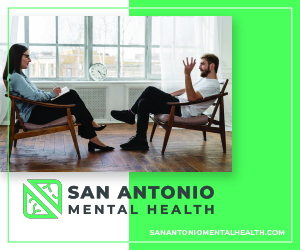Recognizing the connection between physical activity and mental wellness
By Nicole Rogers, MPH, CHES
With so much emphasis on physical health and wellness these days, it’s easy to overlook the importance of mental health and ignore the link between physical activity and mental wellness.
Like physical health, mental health is impacted by biological, physiological, social and cultural factors. Over a lifespan, across gender, ethnicity and socio-economic environments, mental health plays a crucial role in every aspect of human interaction.
Physical activity is believed to improve the quality of life for those dealing with mental health problems by strengthening the ability to cope with life’s everyday challenges. It has been credited with improving overall mental well-being as people who exercise report an improved body image, improved mood and a reduction in sleep difficulties.
Participants in sports and exercise clubs may reap the additional benefit that the social environment can have on mental health. Members of these social organizations frequently report a sense of cohesion and belonging. Among all the research being conducted today is the study of the impact of the social environment on disease.
One major mental health concern faced by many in the U.S. today is depression. Chronic depression is defined as feeling depressed or sad for two or more years. The National Institute of Mental Health reports depression as a leading cause of disability and ranks it second in terms of disease burden. The World Health Organization reports that 25 percent of the population will develop some form of mental disorder at some point in life, and the number of people suffering from depression is nearly 121 million.
The 2006 Bexar County Community Health Assessment, compiled by the Health Collaborative, reported that 24 percent of the respondents said that they felt depressed for two or more years.
Research shows that regular physical activity helps maintain a healthy heart and circulation. It also improves blood flow and blood pressure. It lowers glucose levels, helps with weight loss and strengthens muscles. Consequently, exercise helps prevent depression. It is not necessary to engage in strenuous activity to reap the benefits of exercise. Moderate exercise such as brisk walking most days of the week for 20 minutes is sufficient to benefit the cardiovascular system. Most people also find it relaxing and say that it helps reduce stress.
The U.S. Surgeon General’s report on mental health states that most of the people with diagnosable mental health disorders do not receive treatment. The stigma associated with mental illness continues to be a barrier to treatment. Increased awareness of mental wellness can help reduce the stigma and encourage individuals to seek help. The Youth Mental Health Council (YMHC) of the Health Collaborative works to identify mental health issues that affect children and to educate and provide resources for parents and other adults who work with children. The council has presented free public forums on such issues as self-injury, binge drinking and suicide prevention. Membership in the YMHC is open to individuals in the community interested in youth mental health.
Understanding the causes of mental illness, how mental illness can be prevented and where to turn for treatment can be helpful in dealing with this issue. Good physical health contributes to good mental health, making fitness and nutrition important. Regular medical check-ups are important, too, because they can detect mental issues.
It’s important that people recognize the importance of mental health in our community and take an active role in increasing awareness that physical fitness can improve mental wellness.
Start with yourself! Get out there and exercise, and you’ll find yourself smiling all day long!
Nicole Rogers, MPH, CHES is the executive director of The Health Collaborative, a cutting-edge, public-private model for solving community health issues. For more information, visit www.healthcollaborative.net.






